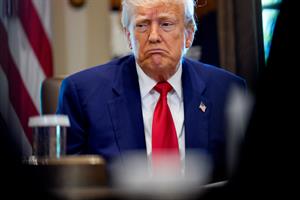However, this transition is increasingly threatened by a rising tide of anti-wind rhetoric, fuelled by politicians and climate science sceptics, many of whom wield significant influence on social media platforms.
These voices propagate false claims about wind energy's environmental impacts and feasibility, undermining public support and stalling progress.
The stakes have never been higher: as we strive to harness the vast potential of wind power to achieve energy security and combat climate change, we must confront and counter this misinformation head-on. The path forward is fraught with challenges, but the importance of advocating for wind energy has never been clearer.
Challenges from anti-wind rhetoric
Despite the proven benefits of a green energy transition, anti-environment rhetoric continues to spread among the far right.
Offshore wind farms have been blamed for impacting the migrating routes of whales (completely false) and injuring large birds of prey (more birds fly into office buildings than wind turbines). At the same time, their size often invites criticism in the rural areas where they are built.
Earlier this year, Ewa Zajączkowska-Hernik – a Polish member of the European Parliament and part of the Eurosceptic, hard-right Europe of Sovereign Nations (ESN group) – personally attacked European Commission president Ursula von der Leyen and the green policies that have been implemented across the EU under her leadership. It can be difficult to counter alarmist claims about energy infrastructure because the positive impacts often take time to materialise and aren't immediately apparent to the average person.
Despite the facts and figures supporting the need for a green energy transition, criticism from far-right groups and personalities persists. Of course, the energy sector needs to change. But attacking the necessity and importance of the energy transition and of protecting the environment and the health and safety of millions worldwide? That’s not going to help anyone.
Advancing the energy transition
Despite these challenges, the energy transition is delivering significant benefits to countries taking a proactive approach. Over the past 20 years, the introduction of new technology, investment in infrastructure and the establishment of green regulations have transformed the energy sector, creating a real foundation for a sustainable future without reliance on fossil fuels. For instance, Portugal has demonstrated renewable energy potential by running on 100% renewable power during particularly windy and sunny periods.
While much progress is still to be made and the obstacles are substantial, the UK is on the right track towards a complete energy transition. Although successive governments have faced criticism for not accelerating green initiatives, the UK Labour Party's decision to lift the ban on new onshore wind turbines is a positive step forward.
Additionally, the UK government has announced that it will use land owned by the Crown Estate – a large collection of lands and assets managed on behalf of the British monarch – to help develop new offshore wind farms.
The goal is to achieve 40GW of offshore wind power by 2030. To reach this target, exploring new resources, securing funding, building grid connections, and upgrading the national grid is essential.
The current energy crisis, which came partially as a result of the reduction of Russian fuel supplies, highlighted the need for the UK and other European countries to boost their power generation capabilities significantly. The sharp rise in energy costs was a wake-up call for political leaders, businesses, and consumers.
In response, the new UK government created an energy company called Great British Energy, aiming to address problems caused by over-reliance on Russian energy.
However, these efforts require significant investment. In times of economic instability, high inflation, and political divisions, some leaders and groups argue that spending on renewable energy and climate change initiatives is an unnecessary expense. In the US, for example, about a quarter of Congress members, some of the most influential figures in the country, are climate change sceptics.
The bottom line
Expediting wind power development is a clear and necessary strategy to achieve net zero, and hitting the targets will deliver energy security for future generations. But it’s up to us to prove it.
As industry stakeholders, we highlight the indisputable benefits and absolute necessity of driving the green transition and environmental protections while ensuring bold and false claims do not go unchallenged. We need absolute buy-in from political leaders, the media, tech companies and the public to achieve what is required.
George Brown is head of content at UK-based consultany CFP Energy




HR.jpeg)










